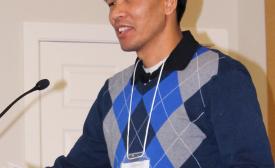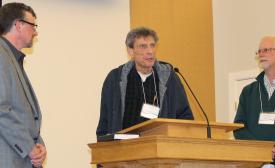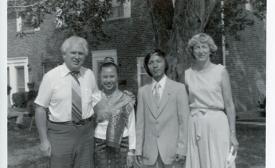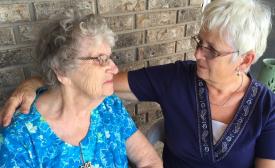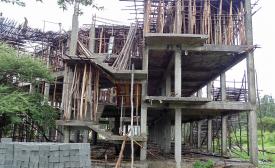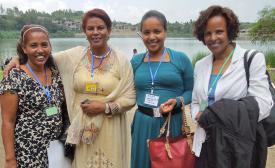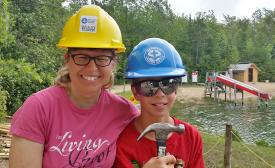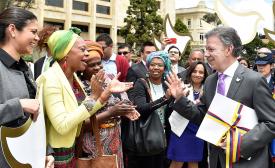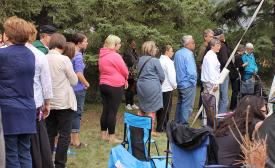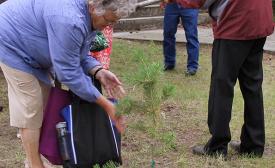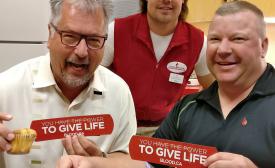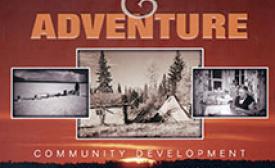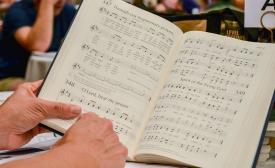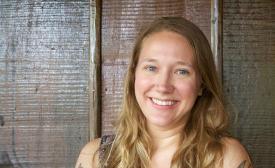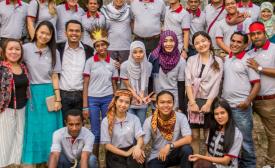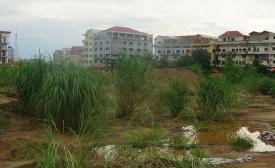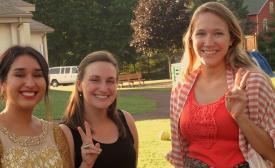Volume 20 Issue 18
Volume 20, Number 18
‘Generous orthodoxy’
coping grieving remembering
Holly (a pseudonym) began experiencing serial pregnancy loss several years ago, after the birth of her youngest son. In her mind, the words “church” and “support” don’t really go together.
Readers write: September 12, 2016 issue
All must learn to discern
Jesus loves his bride . . . to the point of death
Going to J-school: my walk of protest
Houmphan
Rad and Pat Houmphan, centre, have a long history of working in the Mennonite church. When they came to Canada as refugees in 1979, Otto and Florence Driedger of Regina, far left and far right, helped them settle in Regina. Pat attended Swift Current Bible Institute and Mennonite Brethren Bible College, and eventually graduated from Trinity Western University in B.C.
Embracing transition in our lives
Transition is something that we all face! From the time we are born until we breathe our last breath, we are transitioning from one stage of life to another. Some of these transitions are almost imperceptible, and we adjust to them with ease, while others, such as events outside of our personal world, may throw us off-balance, as they often do.
Dormitory to create equal opportunity for women
The importance of ‘memory institutions’
MDS builds at Silver Lake Mennonite Camp
Mennonite Disaster Service (MDS) Ontario started discussions with Dave Erb, executive director of Silver Lake Mennonite Camp, over a year ago, to explore the possibility of partnering on a “family project.” The goal was to provide a service opportunity for families with younger children in a safe multi-generational setting while building new structures at the camp.
Accord ends 50 years of war in Colombia
For decades, Colombia has been known for violence, narcotics and instability. But now it is within sight of an historic peace agreement that César García—the Colombian who heads Mennonite World Conference, which is based in the country—says mirrors notions of restorative justice valued by many Anabaptists.
‘Our children need to know’
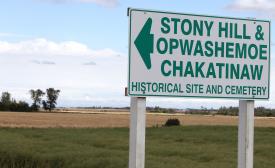
The sign directing people to Stony Hill, the former site of St. John’s Lutheran Church and of the Young Chippewayan Reserve No. 107, was changed earlier this year to reflect its importance to indigenous people. The name Opwashemoe Chakatinaw means Stoney Knoll in English. (Photo by Donna Schulz)
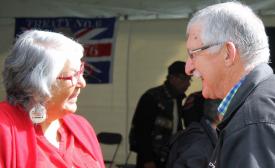
Chief Sylvia Weenie of the Young Chippewayan band chats with Leonard Doell, coordinator of Mennonite Central Committee Saskatchewan’s Indigenous Neighbours Program, at the 140th anniversary of the signing of Treaty 6, held recently at Stoney Knoll. (Photo by Donna Schulz)
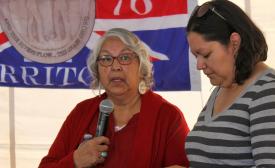
With her daughter Kimberley holding her notes, Chief Sylvia Weenie addresses the audience gathered to mark the 140th anniversary of the signing of Treaty 6. ‘Stoney Knoll history needs to be told,’ she says. ‘Our children need to know.’ (Photo by Donna Schulz)
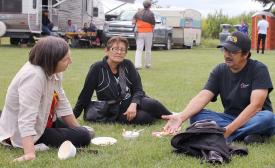
Rita Macdonald of Rosthern Mennonite Church, left, visits with Marshall Williams and his wife Verna at the 140th anniversary of the signing of Treaty 6, held recently at Stoney Knoll, Sask. Williams is the hereditary chief of the Young Chippewayan band. (Photo by Donna Schulz)
“It’s really cool to see white people here today,” said Cheyenne Fineday. The first nation teenager was speaking at the 140th anniversary of the signing of Treaty 6 on Aug. 23, 2016. Held at Stoney Knoll, 76 kilometres north of Saskatoon, the celebration included both indigenous and settler peoples.
‘An easy way to profess faith’
Glick family experiences ‘risk and adventure’
Passion for worship leads to work on new hymnal
It’s not easy being global
For much of my life, I’ve called myself a global citizen. Until recently, though, I had no idea how naïve saying this actually was.
A global citizen is someone who identifies him- or herself as part of an emerging world community, and who is committed to building this community’s values and practices.

